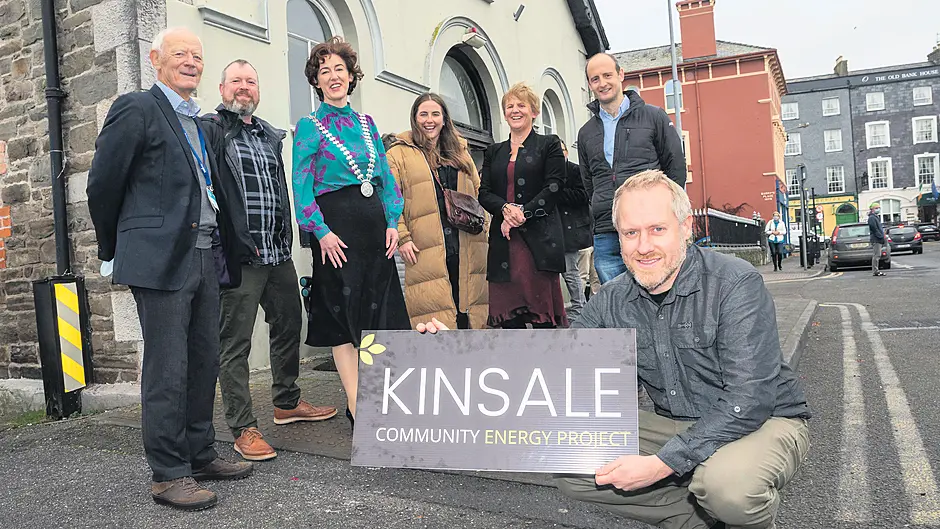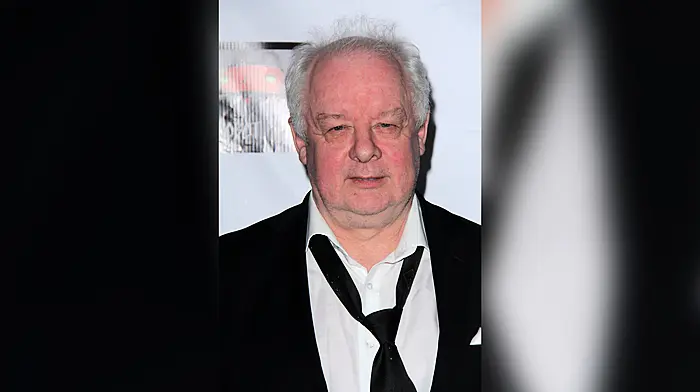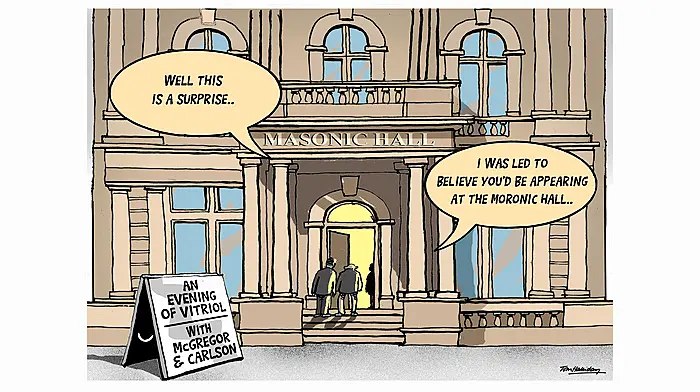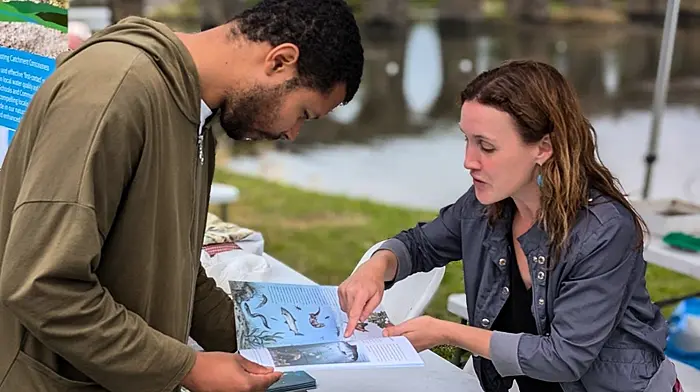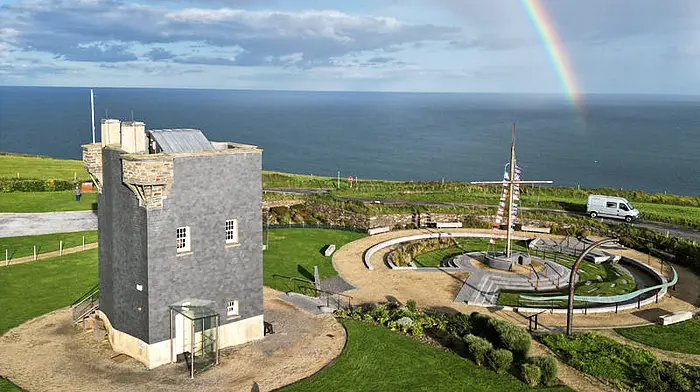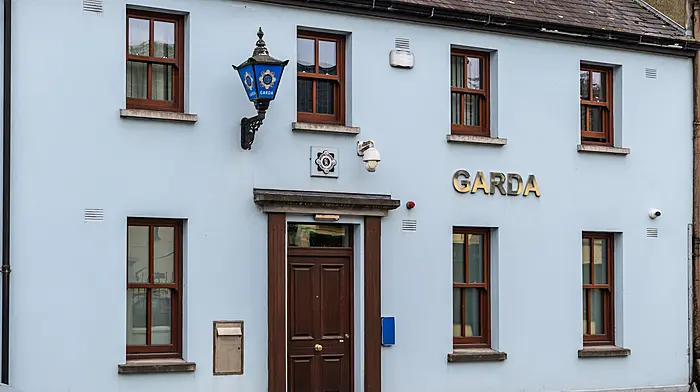A group of volunteers are working to make Kinsale a more sustainable place to live and work and they have just produced an Energy Master Plan which sets out a roadmap on how to achieve that, writes Niamh Hayes
WORKING today for a sustainable tomorrow.
That is the tagline of Transition Town Kinsale, a voluntary community initiative working to help make the transition from a dependency on fossil fuel to a low carbon future, in and around the Kinsale area.
The initiative is spearheaded by a group of volunteers who are working together with the common goal of making Kinsale a more sustainable place to live and work, and they have just launched their Energy Master Plan.
Transition Town Kinsale was formed in 2005. Rob Hopkins, teacher of Permaculture at Kinsale Further Education College, along with his students, produced the Kinsale Energy Descent Action Plan. Two of his students, Louise Rooney and Catherine Dunne, set about promoting a more sustainable way of living within the community and Transition Town Kinsale was born. The Transition Town movement now exists in over 50 countries worldwide.
With the support of Kinsale Town Council, Cork County Council, West Cork Development Partnership and many other organisations, Transition Town Kinsale began to explore what areas could be addressed and they went on to set up groups to look at waste reduction, energy, food, transport, health, and education and community. Within each of these groups, ideas are shared, and projects initiated, with the aim of improving sustainability within each of the above areas.
Kinsale Community Energy Project, which falls under Transition Town Kinsale, recently produced the Energy Master Plan, which was written by Trevor Sweetnam and Stephen McGovern of the Cork Energy Rating Company and Brí Buildings and Energy. Funding was provided by the Sustainable Energy Authority of Ireland (SEAI).
It was officially launched on November 6th by Cork county mayor Gillian Coughlan, at the Temperance Hall in the town.
Dónal Chambers is the chairperson of both Transition Town Kinsale and Kinsale Community Energy Project. He has a very simple philosophy when it comes to sustainability.
 Transition Town Kinsale is also making biodiversity a priority. Mmember Mary Minihane on the Kinsale Edible Walk, a trail of edible plants organised by FutureKinsale.ie. With Mary are Alan Clayton, FutureKinsale.ie and Ethan Monkhouse and Killian O’Neill from walk designers Socialify. (Photo: John Allen)
Transition Town Kinsale is also making biodiversity a priority. Mmember Mary Minihane on the Kinsale Edible Walk, a trail of edible plants organised by FutureKinsale.ie. With Mary are Alan Clayton, FutureKinsale.ie and Ethan Monkhouse and Killian O’Neill from walk designers Socialify. (Photo: John Allen)
‘We can’t consume our way to sustainability, we have to produce our way to it,’ says Dónal, who manages the Sustainable Horticulture/Permaculture course at Kinsale Further Education College.
‘Everyone wants warmer homes and cheaper bills, so they are open to the idea of making changes in their own homes.’
The Energy Master Plan covers the P17 postcode area which includes about 13,000 residents and 4,400 households. As part of the research for the plan, Dónal drove to the estates in Kinsale and the hinterland, meeting people and auditing homes in terms of their energy efficiency.
The report found that 60% of energy demand relates to the domestic sector and about 20% to the transport sector, and these are the areas that the community should focus on.
The area is heavily reliant on fossil fuels, particularly heating oil, petrol and diesel.
‘I have always wanted to keep it simple, and the published report reflects that. Heat pumps, solar panels and insulation are the key additions people can make’.
A deep retrofit of housing could cut energy consumption by half, while switching to walking and cycling, higher public transport use and adoption of electric vehicles could also half energy demand. The report also suggests that the remaining energy demand could be met from renewable resources.
Dónal got solar panels installed in his own home last April. He was able to charge his electric car for free from the end of April to the end of October, for 90% of the time.
‘People are surprised when I tell them that’, says Dónal.
While some houses use only a little energy, others use much more and Dónal has a simple solution for everyone getting the most out of making their homes more energy efficient.
‘In housing estates, groups of households can come together, get solar panels together, share the costs and have an electricity charge point between them’.
The Master Plan identified five areas where changes can be made: the domestic sector, transport sector, commercial and tourism sectors, agricultural sector, and developing renewable energy in the local area.
Now that the Energy Master Plan has been published and launched, it is time to get people onboard.
Dónal would like to see informative townhall meetings take place in Kinsale.
‘It would be great if the SEAI held regular meetings in the town to talk to people and answer any questions they might have about making changes to their homes, as well as funding and grants’.
While the implementation of the Energy Master Plan is a key project going forward, Transition Town Kinsale is also focusing its attention on its Community Biodiversity Action Plan and making biodiversity a priority in Kinsale.
They also continue to work in the community with projects such as zero waste in Kinsale, the 50 Mile Meal Award, the Edible Landscaping Trail, Sow and Grow, and lobbying for better transport, always on the go.
More information about Transition Town Kinsale and the Energy Master Plan can be found at www.transitiontownkinsale.org and www.kcep.ie

